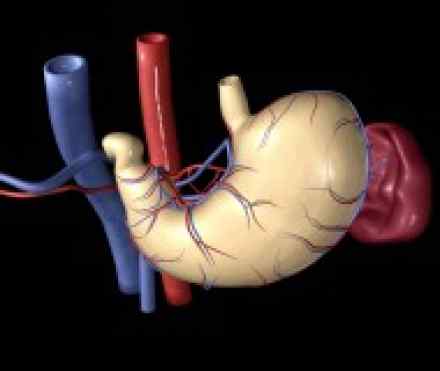
What is it?
A ruptured spleen is a serious condition that can occur when your spleen experiences a trauma. Without emergency treatment, a ruptured spleen can cause life-threatening bleeding.
Your spleen is located just under your rib cage on your left side, a prime spot for injury. With enough force, a blow to your abdomen — during a sporting mishap, a fist fight or a car accident, for example — might lead to a ruptured spleen.
In the past, ruptured spleens usually were removed in emergency surgery. These days, however, it's common for people with ruptured spleens to be treated instead with several days of hospital care to help the spleen heal.
Symptoms
The spleen helps your body fight infection and filter unwanted material, such as old or damaged blood cells. The spleen also produces red blood cells and certain types of white blood cells. A ruptured spleen may pour a large amount of blood into your abdominal cavity.
Abdominal pain and tenderness are the classic symptoms of a ruptured spleen. If internal bleeding causes your blood pressure to drop, you may become lightheaded or confused. Blurred vision and fainting are possible as well.
Causes
A ruptured spleen is typically caused by a blow to the left upper abdomen or the left lower chest. Sporting mishaps, fist fights and car accidents are common triggers. An injured spleen may rupture soon after the abdominal trauma or, in some cases, days or even weeks after the injury.
An enlarged spleen — which may be caused by various underlying problems, from mononucleosis and other infections to liver disease and blood cancers — may sometimes rupture with trauma to the abdomen. In fact, a ruptured spleen is the most significant complication of mononucleosis.
References
http://www.webmd.com/digestive-disorders/ruptured-spleen
http://www.mayoclinic.org/diseases-conditions/ruptured-spleen/symptoms-causes/dxc-20199646
http://emedicine.medscape.com/article/432823-overview
http://www.nhs.uk/conditions/spleen-disorders-splenectomy/Pages/Introduction.aspx
Complications
A ruptured spleen can cause life-threatening bleeding into your abdominal cavity.
Diagnosis
In a critical situation, a physical exam may be the only diagnostic test before emergency surgery. In other cases, a sample of fluid from your abdomen may be tested for the presence of blood. If time allows, your doctor may use CT scans or other imaging tests to identify or rule out other possible causes of your symptoms.
References

